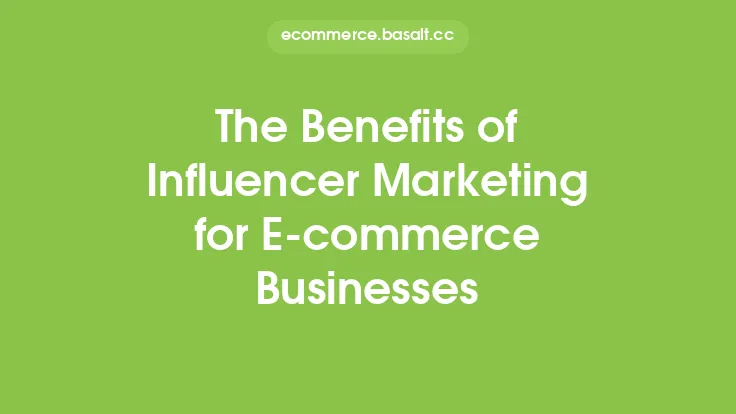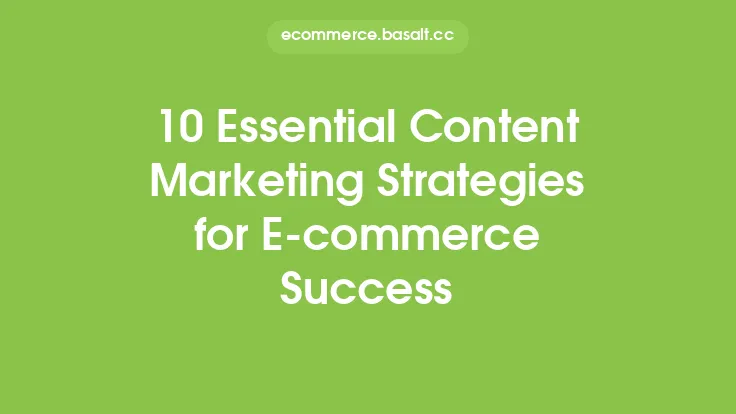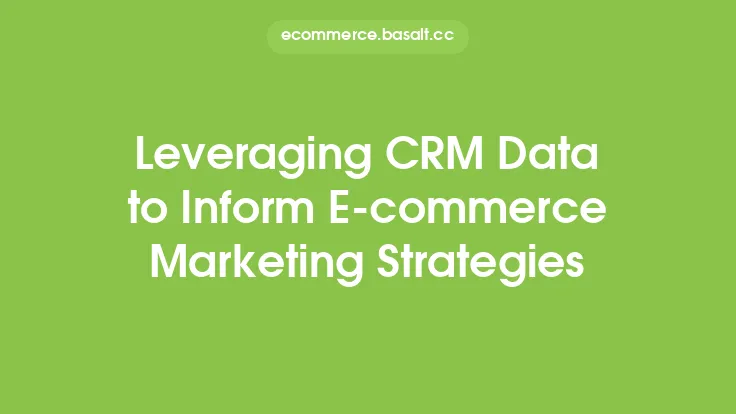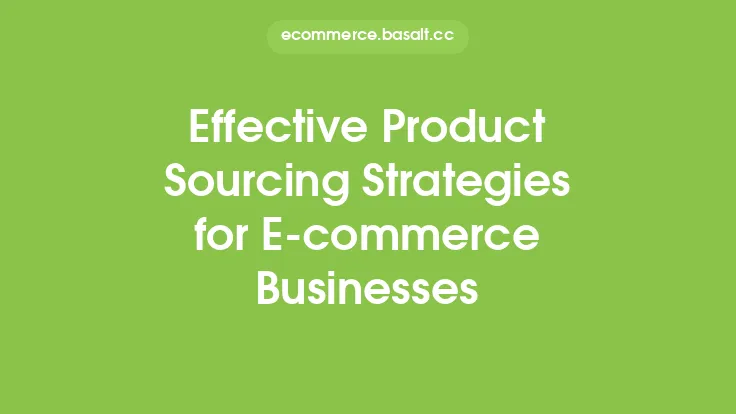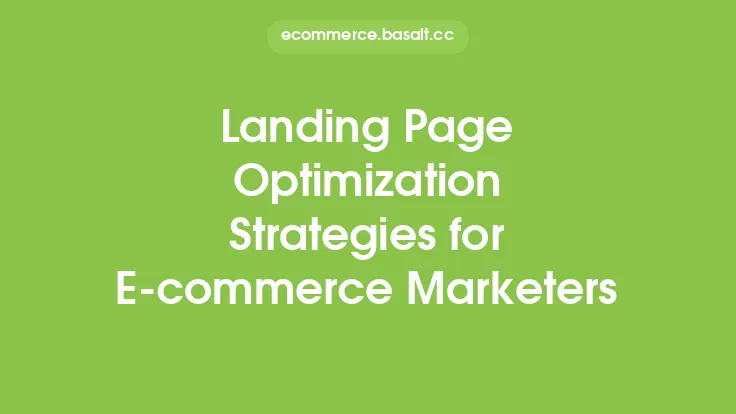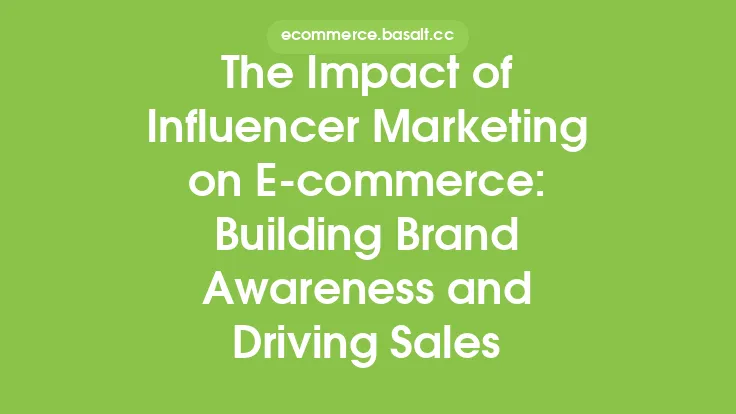When it comes to e-commerce marketing, influencer marketing has become a crucial strategy for businesses to reach their target audience and drive sales. However, different e-commerce niches require unique influencer marketing strategies to effectively resonate with their audience. In this article, we will explore the various influencer marketing strategies that can be applied to different e-commerce niches, providing businesses with a comprehensive guide to creating successful campaigns.
Understanding E-commerce Niches
E-commerce niches refer to specific categories or markets within the e-commerce industry. Examples of e-commerce niches include fashion, beauty, health and wellness, electronics, home goods, and outdoor gear, among others. Each niche has its own unique characteristics, target audience, and marketing requirements. Understanding the nuances of each niche is essential to developing effective influencer marketing strategies.
Fashion and Beauty Influencer Marketing Strategies
For fashion and beauty e-commerce businesses, influencer marketing is a highly effective way to showcase products and reach a large audience. Strategies for this niche include partnering with fashion and beauty influencers to showcase products in tutorials, reviews, and hauls. Influencers can also be used to promote specific product lines, such as makeup or clothing collections. Additionally, fashion and beauty businesses can leverage influencer takeovers, where an influencer takes control of the brand's social media account for a day to showcase their favorite products and share their personal style.
Health and Wellness Influencer Marketing Strategies
For health and wellness e-commerce businesses, influencer marketing strategies focus on promoting healthy living and wellness products. This can include partnering with fitness influencers to showcase workout routines and healthy recipes, as well as partnering with wellness experts to promote supplements and self-care products. Health and wellness businesses can also leverage influencer marketing to promote specific diets or lifestyle choices, such as veganism or keto.
Electronics and Gadgets Influencer Marketing Strategies
For electronics and gadgets e-commerce businesses, influencer marketing strategies focus on showcasing the latest technology and gadgets. This can include partnering with tech influencers to review and compare products, as well as partnering with gaming influencers to showcase gaming consoles and accessories. Electronics and gadgets businesses can also leverage influencer marketing to promote specific product features, such as camera quality or battery life.
Home Goods and Furniture Influencer Marketing Strategies
For home goods and furniture e-commerce businesses, influencer marketing strategies focus on showcasing home decor and furniture products in a lifestyle setting. This can include partnering with home decor influencers to showcase product collections and room makeovers, as well as partnering with lifestyle influencers to showcase products in everyday life. Home goods and furniture businesses can also leverage influencer marketing to promote specific product lines, such as sustainable or eco-friendly products.
Outdoor Gear and Equipment Influencer Marketing Strategies
For outdoor gear and equipment e-commerce businesses, influencer marketing strategies focus on showcasing products in action. This can include partnering with outdoor enthusiasts to showcase hiking and camping gear, as well as partnering with athletes to showcase sports equipment. Outdoor gear and equipment businesses can also leverage influencer marketing to promote specific product features, such as waterproofing or durability.
Leveraging User-Generated Content
User-generated content (UGC) is a powerful influencer marketing strategy that can be applied to any e-commerce niche. UGC involves encouraging customers to share photos or videos of themselves using a product, which can then be showcased on the brand's social media channels. This strategy helps to build trust and credibility with potential customers, as it showcases real people using and enjoying the products.
Influencer Marketing Platforms and Tools
To streamline influencer marketing efforts, businesses can leverage influencer marketing platforms and tools. These platforms provide a range of features, including influencer discovery, campaign management, and analytics. Examples of influencer marketing platforms include AspireIQ, Upfluence, and Grin. These platforms can help businesses to find and partner with influencers, manage campaigns, and track the success of their influencer marketing efforts.
Measuring Influencer Marketing Success
To measure the success of influencer marketing campaigns, businesses can track a range of metrics, including engagement rates, website traffic, and sales. Influencer marketing platforms and tools can provide detailed analytics and insights, helping businesses to understand the effectiveness of their campaigns and make data-driven decisions. Additionally, businesses can use tracking links and promo codes to monitor the success of influencer marketing campaigns and attribute sales to specific influencers.
Creating Effective Influencer Marketing Content
To create effective influencer marketing content, businesses should focus on developing high-quality, engaging content that resonates with their target audience. This can include product reviews, tutorials, and lifestyle shots, as well as videos and stories. Businesses should also ensure that their content is optimized for mobile devices, as the majority of social media users access platforms through their smartphones. Additionally, businesses should leverage influencer marketing content to tell a story and showcase their brand personality, rather than simply promoting products.
Building Influencer Relationships
To build successful influencer marketing campaigns, businesses should focus on building strong relationships with influencers. This can involve communicating regularly with influencers, providing them with high-quality products and content, and offering incentives and rewards for their participation. Businesses should also ensure that they are partnering with influencers who align with their brand values and target audience, as this will help to create authentic and effective campaigns. By building strong relationships with influencers, businesses can create long-term partnerships and develop successful influencer marketing campaigns that drive sales and increase brand awareness.
